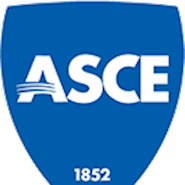ASCE has honored Bharadwaj R.K. Mantha, Ph.D., A.M.ASCE; Carol C. Menassa, Ph.D., A.M.ASCE; Vineet R. Kamat, Ph.D., M.ASCE, and Clive R. D’Souza with the 2021 Arthur M. Wellington Prize for their paper “Evaluation of Preference- and Constraint-Sensitive Path Planning for Assisted Navigation in Indoor Building Environments,” Journal of Computing in Civil Engineering, June 2020.
Lack of access to independent and effective end-to-end (E2E) transportation and mobility has life-altering implications for people with physical disabilities (PPD). Research has consistently shown that mobility constraints in PPD reduce access to education, employment, and healthcare; exacerbate physical and mental stress leading to other chronic morbidities; and impose a significant burden on families, caregivers, the healthcare system, and society. Collectively, the unrealized potential of PPD and their missed contributions to society are substantial. Independent transportation and mobility in PPD notably enhances their quality of life by allowing social inclusion and promoting self-esteem while reducing caregiver burden. Despite significant technological advances in the last few decades, PPD who rely on wheeled mobility devices continue to face significant challenges when independently navigating inside complex indoor building environments.
Several technological solutions have been explored to address this issue in previous work. For example, vision-based techniques that utilize fiducial markers as visual cues for assisted navigation have received particular attention because of their cost-effectiveness, reconfigurability, and ease of installation. Although such previous work addressed indoor localization for assisted navigation, it did not adequately address the fundamental aspects of indoor path planning, particularly in the context of considering human preferences or physical constraints present in the built environment.
The study presented in the awarded paper addresses these key research gaps by developing fundamental rules for creating an indoor attribute-loaded graph network and a marker network map, developing a generic algorithm for determining optimal paths (instead of shortest paths only) from attribute-loaded networks and integrating the findings within an interactive user interface (UI). A scenario analysis followed by a usability study in a real physical environment was conducted to evaluate the navigation interface. The results strongly demonstrated the effectiveness of the proposed navigation system and provided design insights for improving the usability and performance of the proposed approach. The research presented in this paper has developed a game-changing capability that has the potential of significantly improving the mobility of PPD in indoor buildings and other built environments.
Mantha is visiting assistant professor at University of Sharjah, UAE; Menassa is an associate professor at the University of Michigan; Kamat is a professor of civil and environmental engineering at the University of Michigan; and D’Souza is an assistant professor at University of Michigan, Ann Arbor.
The Arthur M. Wellington Prize is awarded to the author or authors of a paper on transportation on land, on the water, in the air, or on foundations, and closely related subjects.



